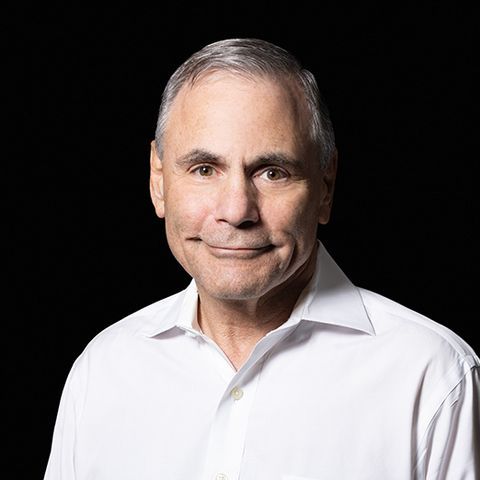Alerts
ERISA Liabilities of Private Equity Funds: First Circuit Addresses Control Group Liability
August 2, 2013
In a decision of significance to private equity funds, the United States Court of Appeals for the First Circuit recently held that: (1) a private equity fund can be liable as a “trade or business” for the withdrawal liability of its portfolio company; and (2) by structuring its portfolio company investment to avoid ERISA’s 80 percent parent-subsidiary common control threshold, the private equity fund did not engage in a transaction to “evade or avoid” withdrawal liability. Sun Capital Partners III, LP v. New England Teamsters & Trucking Indus. Pension Fund, No. 12-2312 (1st Cir. July 24, 2013). Although the decision concerns a private equity fund’s liability for the withdrawal liability of a portfolio company that contributed to a multiemployer pension plan, it is also applicable to ERISA-controlled group liability arising from single-employer pension plan terminations.
In 2007, Sun Capital invested in Scott Bass Inc. (“SBI”), a metal manufacturer. Sun Capital divided its investment between two of its funds (the “Sun Funds”), so that one fund owned 70 percent of SBI and the other owned 30 percent of SBI. SBI had an obligation to contribute to the New England Teamsters and Trucking Industry Pension Fund (the “Teamsters Plan”) pursuant to a collective bargaining agreement. In October 2008, SBI stopped making contributions to the Teamsters Plan and became liable for withdrawal liability. The Teamsters Plan assessed withdrawal liability against SBI and the Sun Funds as alleged members of SBI’s controlled group. Under ERISA, to be liable as a member of a contributing employer’s controlled group, the entity must be: (1) under “common control” with the obligated entity; and (2) a “trade or business.” 29 U.S.C. §1301(b)(1). Asserting that they were merely passive investors, the Sun Funds challenged the Teamsters Plan’s withdrawal-liability assessment under both prongs of the test.
“Trade or Business” Under ERISA
In rejecting the Sun Funds’ assertion that they were not engaged in a “trade or business,” the court reversed, in large part, a 2012 district court decision. That decision had rejected the opinion of the Pension Benefit Guaranty Corporation (“PBGC”) that a private equity fund can be a “trade or business” for purposes of assessing ERISA-controlled group liability (the “2007 PBGC Opinion”). The court likewise declined to give the 2007 PBGC Opinion deference. Instead, it took a “very fact specific” “investment plus” approach to evaluate whether the Sun Funds were engaged in a “trade or business.” The court considered a number of factors, focusing on the Sun Funds’ operation and management of SBI, and the financial advantages they obtained as a result:
- Goal of Making Profits Derived from Intervention in Management and Operations. The funds seek to invest in companies that need to improve their management and operations and to provide necessary intervention, with the goal of ultimately selling the companies for a profit.
- Involvement in Portfolio Company Management and Operations. The funds (through their agents) are actively involved in the management and operation of the companies in which they invest. For example, they can and do make decisions about hiring, terminating and compensating employees of their portfolio companies.
- Governance Control. The funds’ controlling ownership stakes enable them to control the portfolio companies’ boards.
- Direct Economic Benefit. The funds obtain a direct economic benefit that a passive investor would not obtain.
Holding that no single factor is dispositive, with respect to one of the Sun Funds, the court concluded that “the sum of all of these factors” satisfied “the ‘plus’ in the ‘investment plus’ test.” With respect to the other fund, however, the court remanded the case to the district court to determine, after further development of the record, whether the fund received a direct economic benefit via an offset against the management fees the fund would otherwise have paid its general partner for its management services and whether the fund is a trade or business under ERISA.
The court also rejected the Sun Funds’ argument that they cannot be trades or businesses because that determination would be inconsistent with certain Supreme Court decisions under the Internal Revenue Code (the “Code”) interpreting the term “trade or business.” The court held that “trade or business” can have a different meaning under ERISA than under the Code, and, in any event, decisions under the Code are factually distinguishable, and the court’s interpretation is consistent with relevant decisions under the Code. Finally, the court rejected the Sun Funds’ argument that the relevant activities of their agents cannot be attributed to them.
It is difficult to square the court’s decision to remand the case to the district court for further factual development with its explicit cautioning that none of the factors it described “is dispositive in and of itself.” This difficulty creates uncertainty. Nonetheless, the decision gives insight into the factors courts may consider in determining whether a private equity fund is a trade or business under ERISA. Private equity funds should be aware of these factors when investing in, and engaging in activities with respect to, portfolio companies that contribute to multiemployer pension plans or that sponsor single-employer pension plans.
Evade or Avoid
To be in a parent-subsidiary group under “common control,” the parent must have at least an 80 percent interest in the subsidiary. 26 C.F.R. § 1.414(c)-2(b)(2)(i). Since at least the 2007 PBGC Opinion, some private equity funds, like the Sun Funds, have purposefully structured their investments to split their ownership interests among two or more entities to avoid exceeding the 80 percent threshold. The court held that structuring ownership in this manner does not give rise to “evade or avoid” withdrawal liability under Section 1392(c) of ERISA. The court focused on the language of the statute: “[i]f a principal purpose of any transaction is to evade or avoid liability under this part, this part shall be applied (and liability shall be determined and collected) without regard to such transaction.” In reaching its conclusion, the court reasoned that ignoring the allegedly fraudulent transaction — the acquisition of SBI — would result in the Sun Funds having no interest in SBI, and therefore no possible controlled group liability for SBI’s withdrawal liability. The decision gives comfort to private equity funds that they can structure their investments to avoid ERISA’s 80 percent common control threshold without becoming liable for pension liabilities as a result.
Authored by Mark E. Brossman,Ronald E. Richman and Holly H. Weiss.
If you have any questions concerning this Alert, please contact your attorney at Schulte Roth & Zabel or one of the authors.
This information has been prepared by Schulte Roth & Zabel LLP (“SRZ”) for general informational purposes only. It does not constitute legal advice, and is presented without any representation or warranty as to its accuracy, completeness or timeliness. Transmission or receipt of this information does not create an attorney-client relationship with SRZ. Electronic mail or other communications with SRZ cannot be guaranteed to be confidential and will not (without SRZ agreement) create an attorney-client relationship with SRZ. Parties seeking advice should consult with legal counsel familiar with their particular circumstances. The contents of these materials may constitute attorney advertising under the regulations of various jurisdictions.




